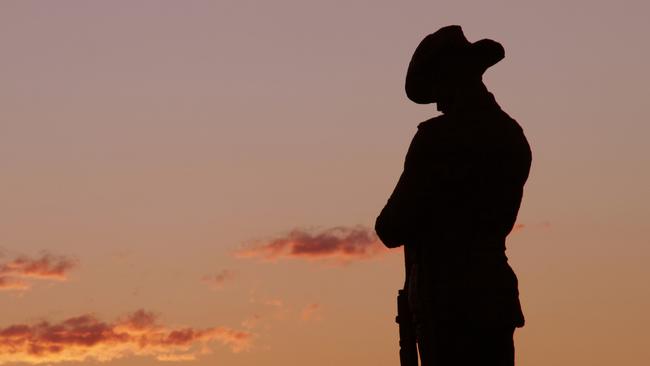No family was untouched by the two world wars
Every Australian family with links to this era has stories to tell of family members lost and, sadly, of the often broken men who returned. Now is the time for us to show our appreciation.

When I was growing up in country Victoria in the 1960s, I had a general awareness of WWII. My father was drafted at the age of 18 in 1942 and spent four years in the army. Most of his intake was destined for the Kokoda Track. My father was spared this fate because of his poor eyesight. Instead he spent the war working as a truck driver and mechanic within Australia.
As kids we heard war stories from both parents. My mother’s brother was in the Top End when Darwin was bombed. My father’s cousin wangled his way into the RAF but tragically died in a training accident in the UK. His parents were devastated. A cousin of my mother’s went missing in action in Rabaul.
I was hooked on these war stories. Even as a kid I asked incessant questions. When were you most scared? My mother said when Darwin was bombed in February 1942. “The Japanese were coming!”
Later in life I became better acquainted with the scale of Australia’s losses in the two world wars. Almost 62,000 died in WWI alone, from a nation of barely five million. No family was untouched by the losses that gave birth to our most sacred day, Anzac Day.
More recently I was able to access military records online via the national archives. That cousin of mum’s who went MIA in Rabaul? It turns out he was a victim of the Tol Plantation massacre of 1942. The Diggers were hopelessly outnumbered by the Japanese, and surrendered – only for 160 of them to be slaughtered in cold blood. Full details of what happened at Tol weren’t released until the 1980s.
I knew little of my family’s contribution in WWI since neither of my grandfathers fought. But many of their brothers and cousins did fight. What strikes me when reading the records of fallen soldiers is the care with which the military took to document their deaths.
A cousin of my grandfather was killed by a sniper in France three months before the end of WWI. He was well liked by his comrades, according to one comment. I would have found that observation soothing, I think, if I was a grieving parent. Although I’m not sure parents (or spouses) got access to the content of these records at the time.
My father’s record has a photo of him at the age of 18. WWI Diggers had studio photos taken in full military regalia. They stood, they smiled confidently into the camera; they had no idea of what lay ahead.
I am also struck by the way younger brothers followed older brothers into battle. I can cite three lines of my family where the youngest brother, of large broods, signed up either at the behest of their older sibling or in order to prove themselves (in battle) as being worthy of their older brother’s respect.
None of these stories of brothers following brothers into battle ended well. One died of encephalitis on the boat to Egypt. Another was shot in the hip. A third was shot in the leg.
Every Australian family with links to this era has stories to tell of family members lost and, sadly, of the often broken men who returned. Now is the time for us to appreciate not just the courage of those who serve but also the support they receive from the loving families they leave behind.






To join the conversation, please log in. Don't have an account? Register
Join the conversation, you are commenting as Logout